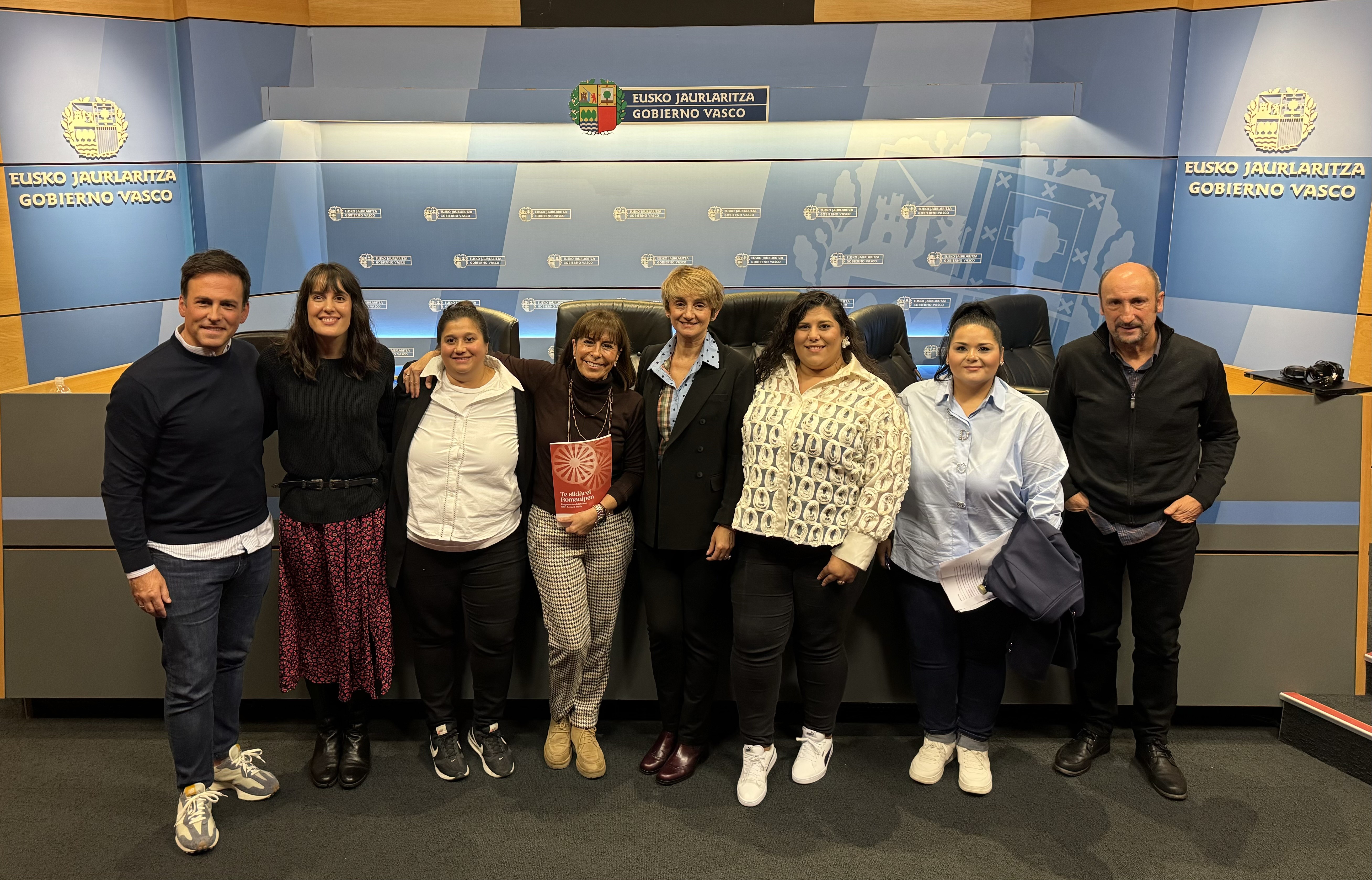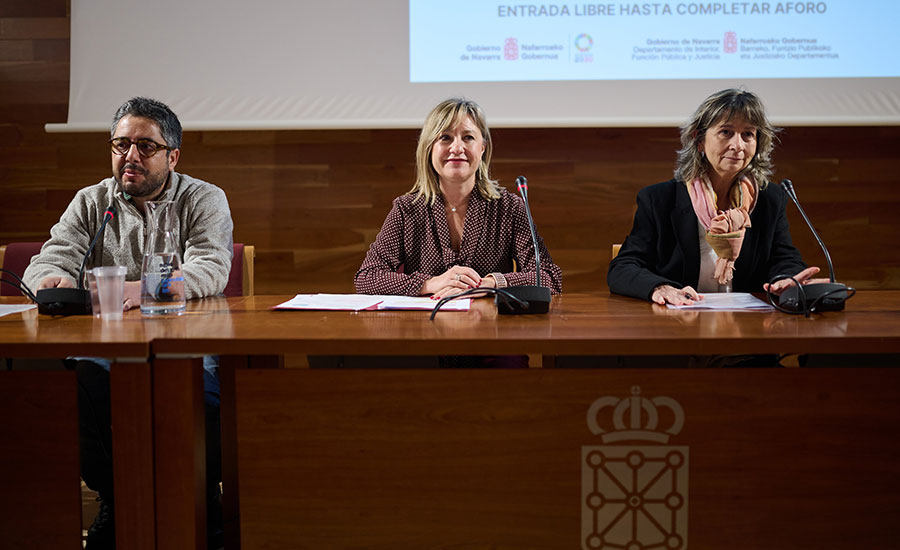The black and white board accompanies us in education
- More and more educational centers use chess as an educational tool and have even incorporated it into the curriculum in different territories. It is ideal for students to work memory, creativity and collaboration, among other things. We have approached the Herrikide de Tolosa school to learn about the benefits of chess.
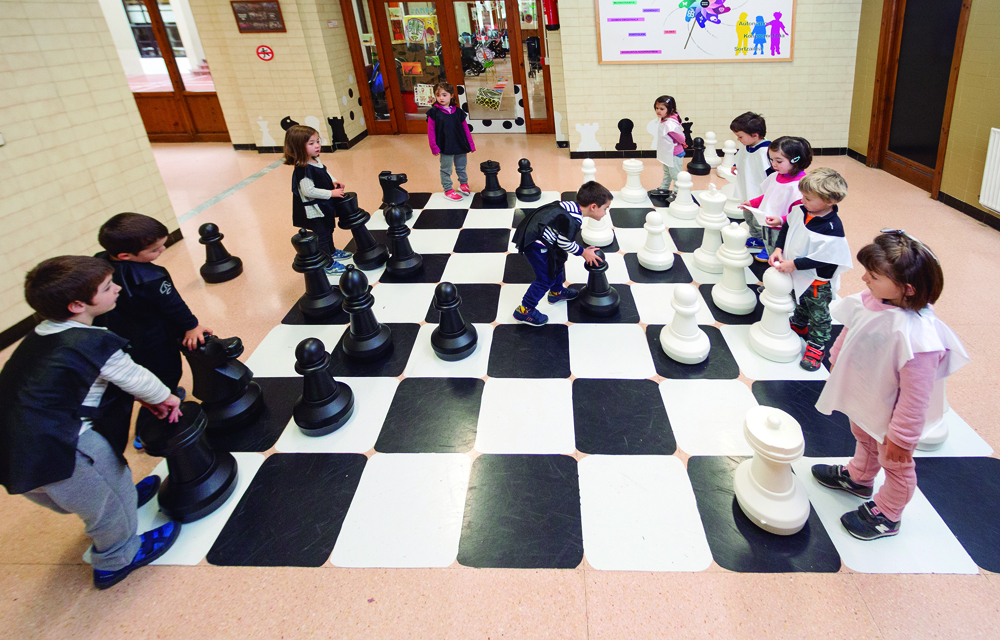
Catalonia is the pioneer in introducing chess in the educational system (has been a subject for five years) and Navarre has just done the same: from the next course, the optional subject will be in the first and second year of Secondary. Rather than teaching students the game, the goal is “to make available to students a tool that helps them develop habits, cognitive processes and skills”. And with that intention they have been put to work in Herrikide. They have started with students 3, 4 and 5 years old, with “very positive” results, and they want to implement it progressively at all levels.
Dance, respect, multiple intelligences… Professors
Gurutze Telleria and Aintzane Leunda have started working chess: they have received training, they have created materials and they have put them into practice. As soon as the training began, they had the first surprise: it is not necessary to know how to play to use it as a pedagogical tool. They soon realized how varied and beautiful the exercises can be done from chess. What does chess have as a reference educational tool? Pello Agirrezabal, director of HH and LH, is clear: “It works comprehensively on solidarity, respect and multiple intelligences. It also allows the development of the student as an individual, rather than as a collective person”. Boys and girls take chess as a game from a young age and on the board they perform vertical, horizontal and dance movements: “We must foster the creativity of students, and for this, spatial intelligence is fundamental. The board helps a lot in it,” the director explains.
The aim is to make available a tool to help develop habits, cognitive processes and abilities. In Herrikide they have started with pupils aged 3, 4 and 5 and want to implement it progressively at all levels
It also talks about values like respect. “You must respect each other’s shifts unintentionally, and leave the game’s command to each other for a certain time.” It also helps to acquire decision-making capacity: how to move the tokens depends on each one’s decision, and the consequences have to be borne by oneself. “At any given time you can have several options, but you must choose one. This can serve any area of life.” Another value, solidarity: “There are exercises that are done from two to two and at a time when the world has to turn around, one has to take the role of the other. From that moment on everyone has to face each other’s pieces.” Or you can also play group games, reinforcing collaboration and teamwork: for example, every tab that you eat to the rival, if you are going to be for the partner who plays on your team, you will have to keep in mind what is the tab that you should eat, what is the one that best suits your partner.
In all subjects, students enjoy
chess with gigantic chess tables drawn in the centre of the Corridor, with impressive pieces and a very special material, and exercises adapted to different ages. In addition, chess can be a travel companion in music, mathematics, or history. For example, in history classes chess can become an added bait, as it has 1,500 years of history at stake and fragments of chess and contemporary history can be told in parallel. Agirrezabal, for example, has used it in mathematics: “I did it to get the students’ attention, we had to give a new theme and wanted to get their involvement from the very beginning. Through play, chess opens the way and helps; from there, it is the teacher’s responsibility to make the way.”
You can also play as a group to strengthen cooperation: every tab that the student eats to the opponent, if it is going to be for the partner who plays on his team, must take into account the tab that he is going to eat
Could chess be included in the CAPV educational curriculum? Agirrezabal believes that there is political will, but that the problem is the lack of stability of the working groups: “In some centers there are projects that are closely linked to certain professors and today teachers change a lot from center.” For these projects, including the chess educators who have launched in Herrikide, to be successful, parents are also key, according to Telleria and Agirrezabal: “What is learned at school has continuity at home and it is very important to make the projects known to the families. It's important to know how your kids work at least. It is essential that families know the school program well.”
The UPV/EHU Palestine was born with the aim of breaking with all Israeli companies and institutions that are carrying out and working with genocide in Palestine. Israel’s impunity comes from its political, military, economic, scientific and academic relations in Europe and the... [+]
Many times, after looking at the brumas from my house, it has occurred to me not to catch umbrellas, even though I know I will just soak up. Why will it be? Maybe you don't want to catch the umbrella? Maybe in the hope that I don't get wet? Nevertheless, the conclusion has always... [+]
In Sociology of Education there is a classical question: Why does the education system exist in a society? The answers to the question are numerous and change according to the time. But among them, it should be noted that the main objective of the school is the creation of... [+]
Why concerted teaching?
The new Education Act adopted by the CAV against most public school officials aims to ensure that concerted education is free of charge through the financing of public authorities. The Spanish State has also announced a significant increase in public... [+]









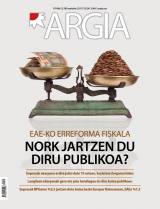

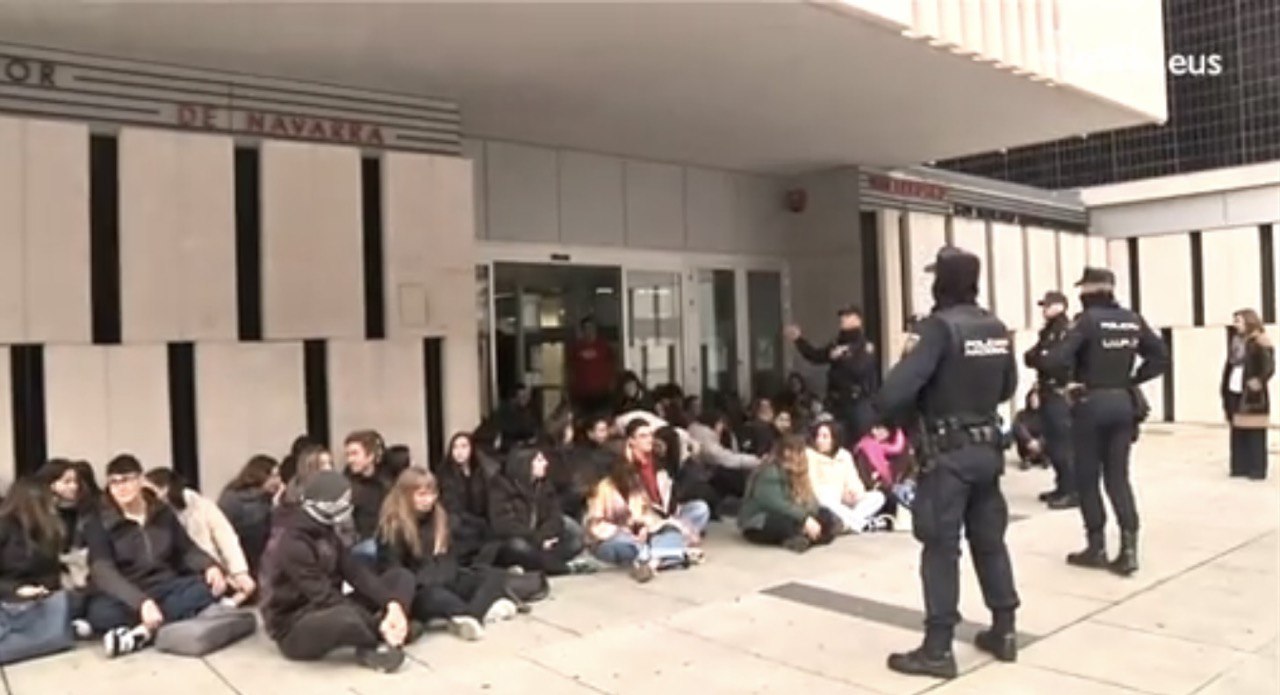

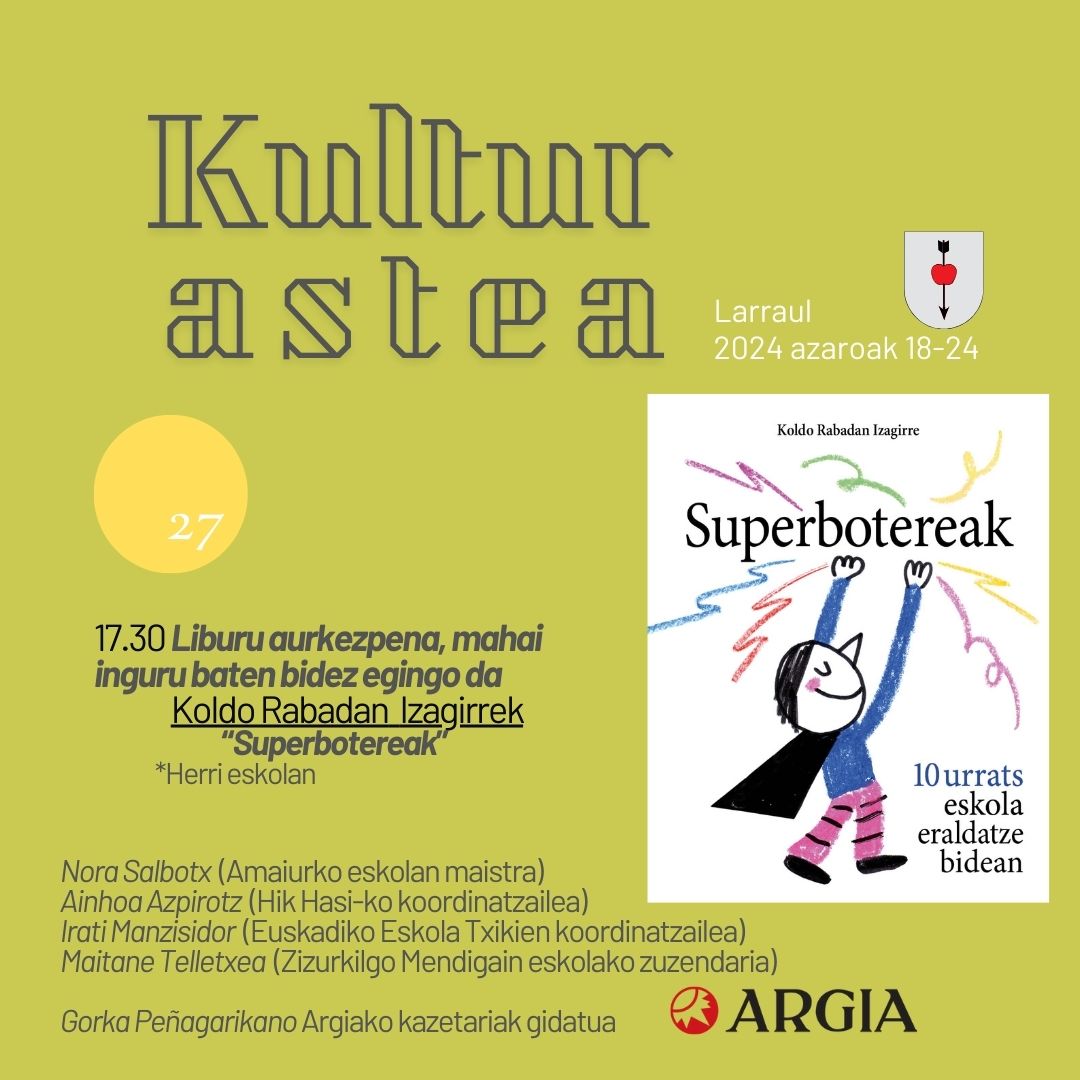

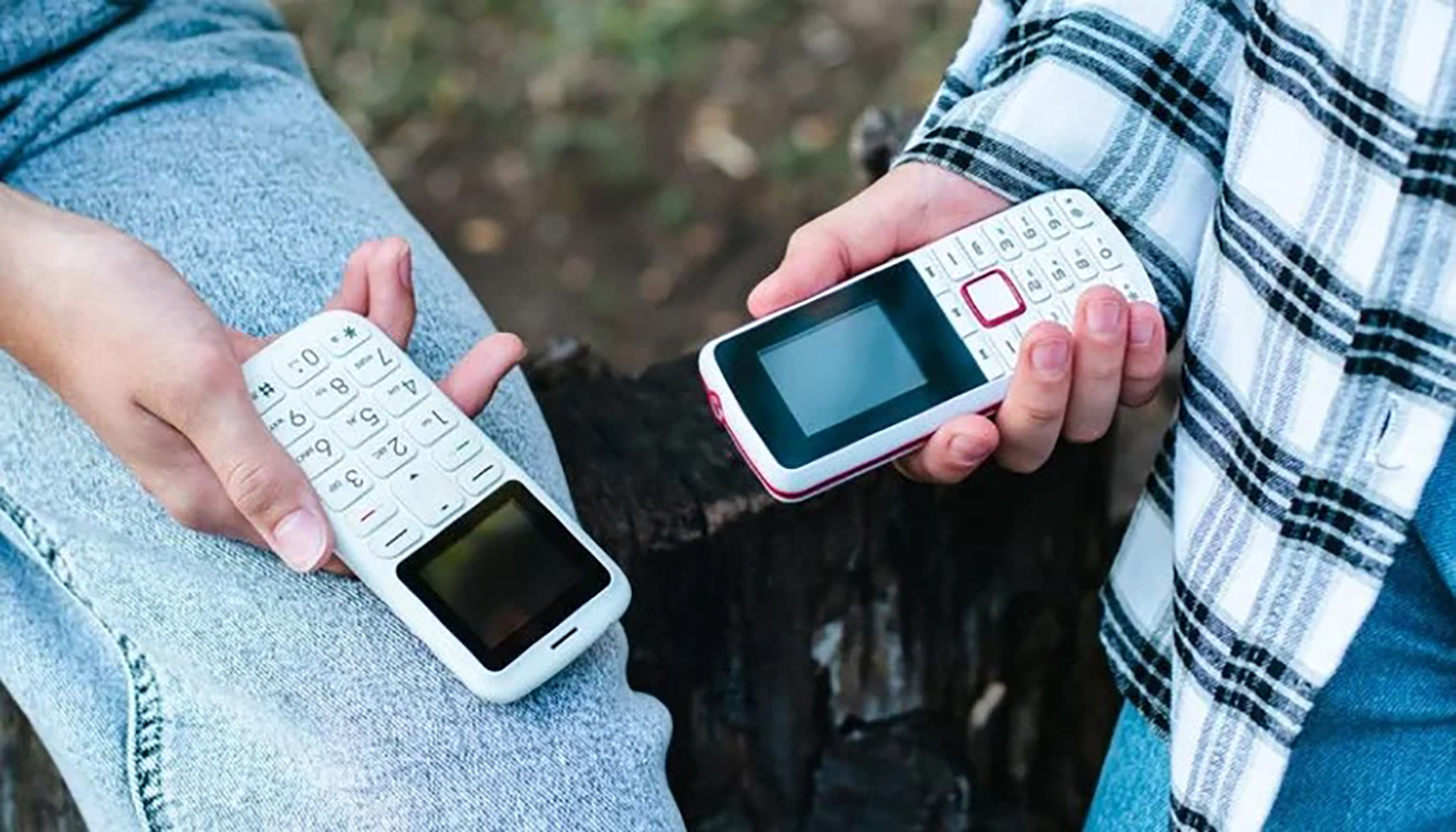
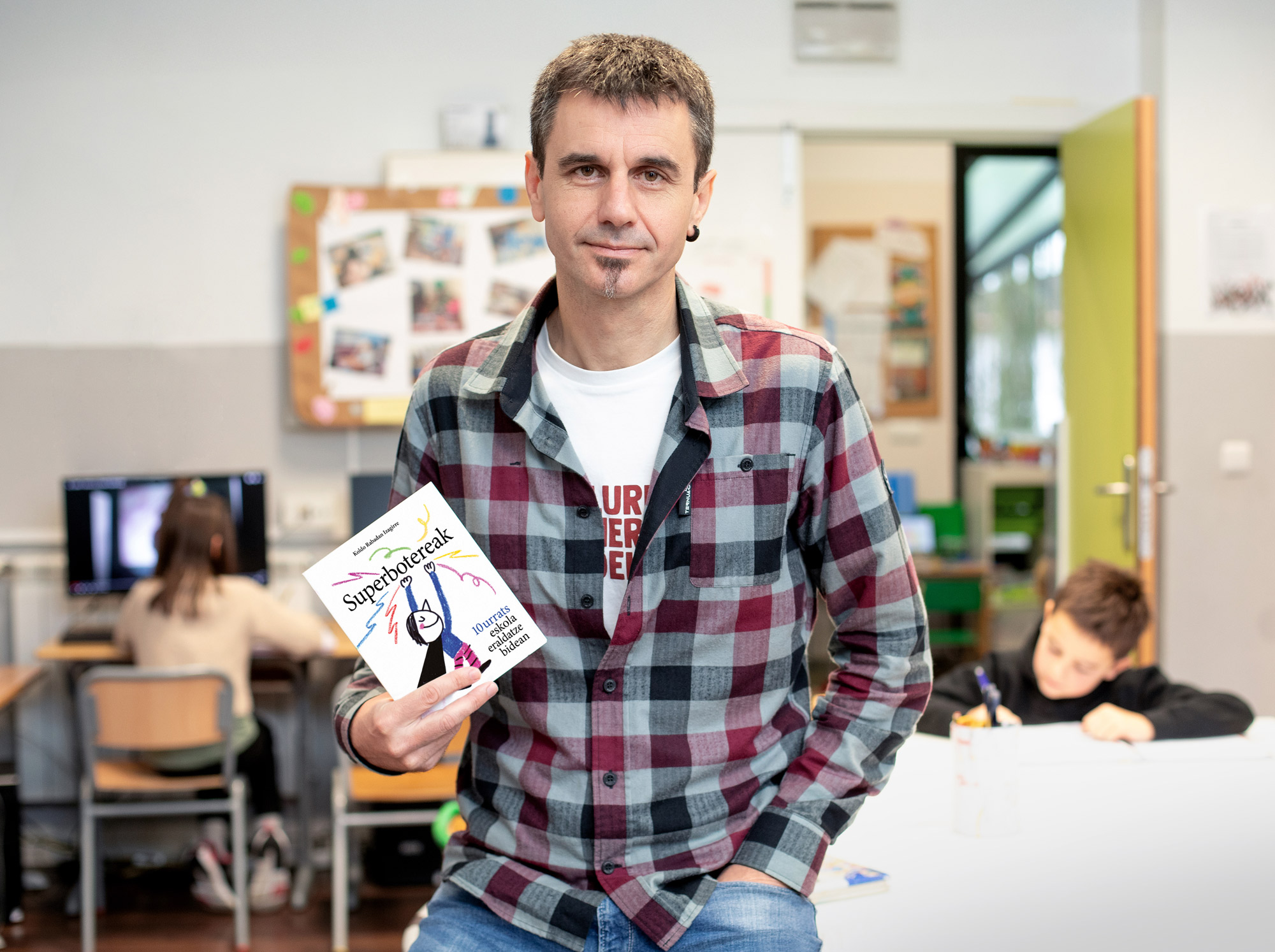


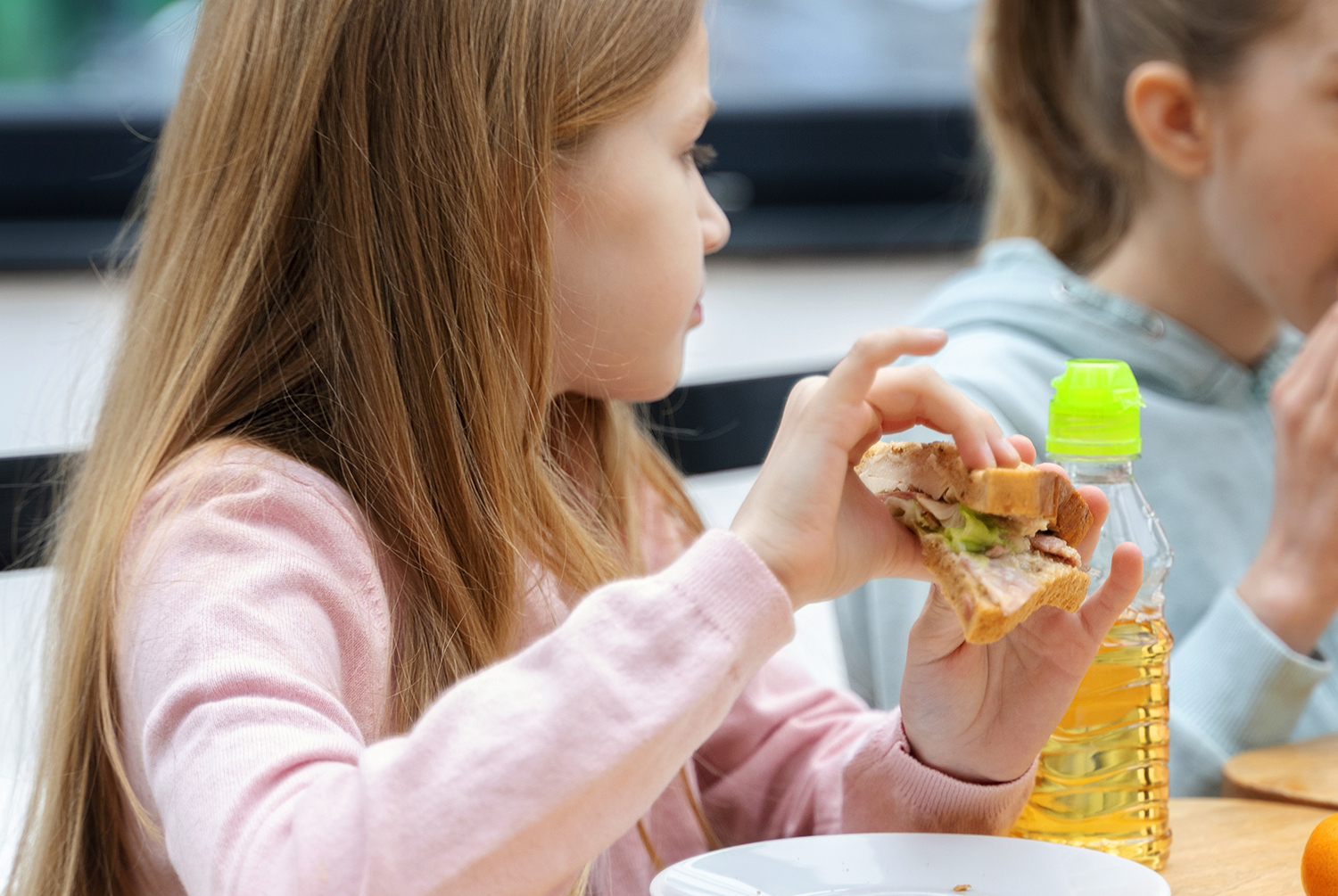
.jpeg)
